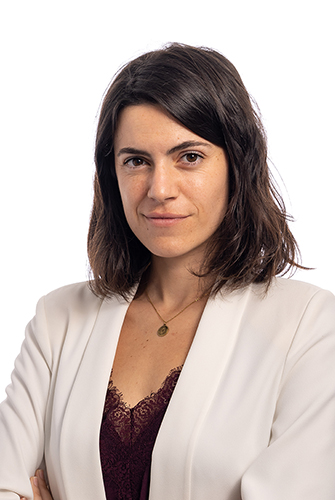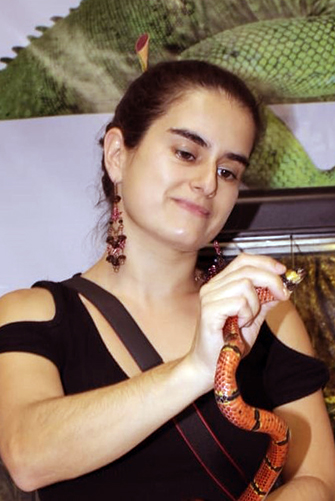It’s official: We are happy to announce the three early-career researchers who won the EuroTech Future Award 2024. They competed in a strong field of 28 applicants from all six EuroTech Universities.
The three most convincing submissions all scored excellent results in the three categories “communication”, “impact”, and “excellence”.
Big congratulations go to:
- 1st Prize: Patricia Mora, Technion
for her submission “Music Input in Nanotechnology-based treatments against Neurological Disorders”
- 2nd Prize: Yudong Xue, EPFL
for his submission “Advancements in Advanced Nanocoating: Transformative Research Contributing to a Sustainable World”
- 3rd Prize: Melisa Benard Valle, DTU
for her submission “A New Generation of Antivenoms: Using Nanobodies to Treat Coral Snake Envenomation”
Find out more about the winners of this second edition of the EuroTech Future Award below. To know more about the award, click here.



Download photos
Patricia Mora | Yudong Xue | Melisa Benard Valle
Title of submission
Music Input in Nanotechnology-based Treatments against Neurological Disorders
Executive summary
Neurological Disorders (ND) represent the first cause of disability and second leading cause of death, having a high societal impact. Nanomedicine offers new therapeutic capabilities, targeted gene and protein delivery, unattainable by traditional therapy. Reaching the central nervous system (CNS) involves crossing the Blood-Brain Barrier (BBB). During my latest project we developed a system able to cross the BBB and bring antibodies to the CNS to treat Parkinson disease, improving motor skills in diseased mice. While the results obtained were exciting, the number of particles needed was considerably high. Therefore, my next research challenge is to increase the nanoparticles brain uptake. Inspired by the popular tale, “the pied piper of Hamelin”, who lures rats out of the town with the music of his magic pipe, I suggest letting music open the nanomedicines’ way into the brain. Since brain stimulation may increase glucose demand, I aim to leverage the increased glucose consumption to direct nanoparticle delivery to CNS. I will modify lipid nanoparticles (LNPs) surface with glucose and evaluate their uptake and therapeutic effect under different music conditions. This novel synergistic approach, combining music and LNPs, could revolutionize ND treatments, addressing different CNS diseases by simply modifying the particle payload.
About Patricia Mora
Patricia Mora-Raimundo is a pharmacist by training by the Universidad Complutense de Madrid and Université Catholique de Louvain, Belgium. After that she joined Prof. Maria Vallet-Regi’s group as doctoral researcher under an ERC project, focusing her efforts on developing mesoporous silica nanoparticles for treating osteoporosis. During her PhD studies, she published “Nanoparticles to Knockdown Osteoporosis-Related Gene and Promote Osteogenic Marker Expression for Osteoporosis Treatment” (Mora-Raimundo, P.; et al ACS Nano 2019, 13 (5), 5451–5464, Impact Factor: 18.027) and “Osteoporosis Remission and New Bone Formation with Mesoporous Silica Nanoparticles” (Mora- Raimundo, P.; et al Advanced Science. 2021, 2101107), Impact Factor: 17.521). Her thesis dissertation titled “Mesoporous Silica Nanoparticles for the Potential Treatment of Osteoporosis”, received Cum Laude and an International PhD distinction. Following an internship at the Technion – Israel Institute of Technology where she took part in different projects focused on the connection between the nervous system and cancer, she was offered a position as a postdoctoral researcher at Prof. Avi Schroeder’s lab. Patricia was awarded with the prestigious Azrieli International Postdoctoral Fellowship (150000 $). Now she focuses her research on the gender differences affecting nanotechnology and the design of nano delivery platforms for treating neurodegenerative diseases.
Links for further information
Google Scholar: https://scholar.google.es/citations?user=d-2BAxAAAAAJ&hl=es
LinkedIn: https://www.linkedin.com/in/patricia-mora-raimundo/
Title of submission
Advancements in Advanced Nanocoating: Transformative Research Contributing to a Sustainable World
Executive summary
My research explores cutting-edge nanocoatings, focusing on materials that can transform industries and positively impact our daily lives. One key achievement involves developing advanced coatings for electrolytic water splitting to produce clean and renewable hydrogen. These coatings, created using sophisticated atomic layer deposition (ALD) techniques, outperform existing alternatives, offering a sustainable solution for large-scale hydrogen production.
Another breakthrough is the design of nanocoatings for environmental catalysis, effectively treating high-salinity wastewater and organic pollutants. This innovation showcases the potential for revolutionizing wastewater treatment, achieving nearly 100% pollutant degradation. This not only contributes to cleaner water but also aligns with global sustainability goals.
In the healthcare sector, my research has extended the lifespan of medical oxygen concentrator adsorbents through the application of nanocoatings. This development is particularly significant for regions with limited access to healthcare resources, potentially improving the availability and affordability of oxygen therapy devices.
Overall, my work goes beyond conventional boundaries, pushing the frontiers of nanomaterial applications. By addressing challenges in renewable energy, environmental protection, and healthcare, these advancements contribute to a more sustainable and resilient future for us all.
About Yudong Xue
Dr. Yudong Xue is a scientist at the École polytechnique fédérale de Lausanne (EPFL), Switzerland, financially supported by a Marie Skłodowska-Curie Scholarship. He received his Ph.D. degree in Chemical Technology from the Chinese Academy of Sciences (CAS), Beijing, China in 2019 and carried out joint PhD research at Yale University (USA), postdoc training at Korea University (Republic of Korea), and EPFL (Switzerland). He has published nearly 30 papers in international peer-reviewed journals such as Chemical Society Reviews, Angewandte Chemie, Journal of Materials Chemistry A, Chemical Engineering Journal, Small, Journal of Power Sources, etc, and received several prestigious including the Marie Curie Fellow Honorific title. His research focuses on pioneering nanomaterials and catalysts-based technologies for clean energy, environmental remediation, advanced separations, and resource utilization.
Link for further information
Google Scholar: https://scholar.google.com/citations?hl=zh-CN&user=h47IhXMAAAAJ
Title of submission
A new generation of antivenoms: Using nanobodies to treat coral snake envenomation
Executive summary
Each year, about 2 million people get bitten by snakes, causing over 130,000 deaths and even more permanent disabilities. Antivenoms, derived from immunized animals, are the only effective treatments. However, antivenoms have problems: They might not work against bites from different kinds of snakes, they are expensive to make, and they can cause side effects. Ideal antivenoms should be effective for several different snake bites and be safe and cheap to use in places where access to medical care is limited.
My research focuses on developing a new generation of antivenoms, recombinant antivenoms, to overcome the drawbacks of current treatments. I am using a technology called phage display to discover a special type of antibodies, known as nanobodies, that can neutralize the effects of the most dangerous toxins in coral snake venoms. Nanobodies are small, fast acting molecules that are stable at high temperatures, making them excellent as possible treatments in tropical developing countries. Thus far, I have neutralized the lethality of complete venoms using a mixture of only two nanobodies. The resulting antivenom has the potential to be more efficacious and broadly-neutralizing than the current treatment, while allowing animal-free production, reduced costs, and lower risk of adverse reactions.
About Melisa Benard Valle
Melisa Benard Valle is a biologist with a profound interest in snake venom function as well as antivenom evaluation and development. In 2020, she completed her PhD at the Institute of Biotechnology, UNAM, in Mexico. As part of the group of Prof. Alejandro Alagón, she made significant contributions to the characterization of Mexican snake venoms, particularly coral snakes. During her studies, she was curator of the Herpetarium Cantil (IBt-UNAM) where she acquired experience in venomous snake handling and was constantly working on science communication and outreach activities.
In 2021, she was awarded a Small Grant from the RSTMH to perform a stay at the Tropical Pharmacology Lab (DTU, Denmark), under the supervision of Prof. Andreas Laustsen-Kiel, to discover antibodies against coral snake venom toxins. Later, she obtained a Fulbright Garcia-Robles Scholarship for a postdoctoral stay at the laboratory of Dr. Stephen Mackessy, from the University of Northern Colorado, USA, where she studied colubrid venom composition and mechanisms of venom resistance in snakes.
She is currently a Marie-Sklodowska-Curie Postdoctoral Fellow at the Center for Antibody Technologies of the Technical University of Denmark and focuses her research on development of new generation antivenoms against snakes and other animal envenomations.
Links for further information
Profile on DTU website: https://orbit.dtu.dk/en/persons/melisa-benard-valle
LinkedIn: https://www.linkedin.com/in/melisabenardvalle/





